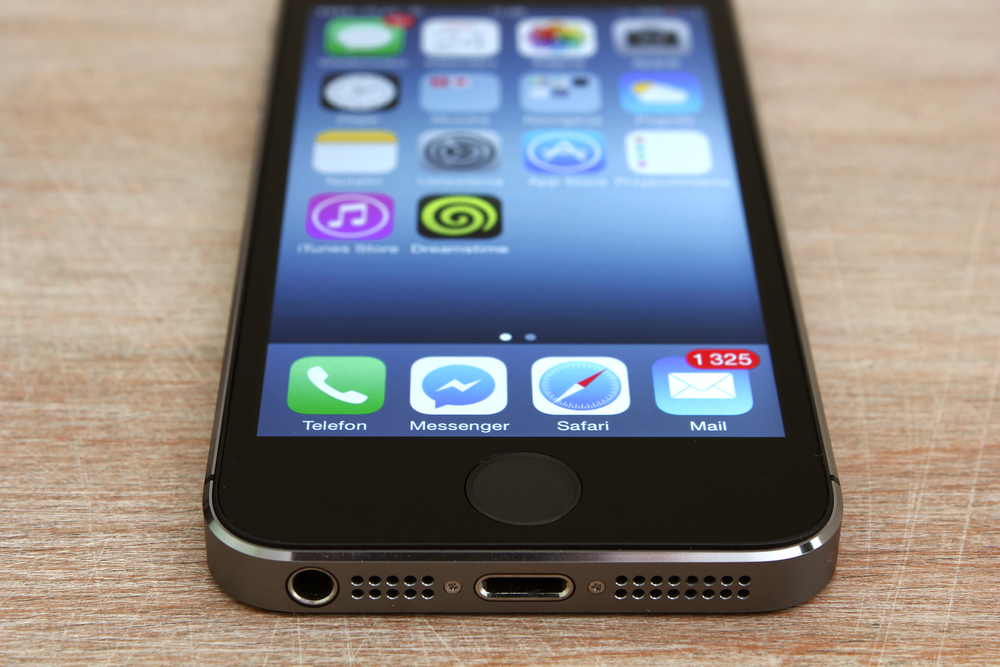A new app for Apple iPhones created by researchers at Boston Children’s Hospital, is designed to enable hepatitis C patients to participate in outcomes research from their iPhone.
C Tracker, developed by Boston Children’s Hospital and Boston Children’s Computational Health Informatics Program (CHIP), is an iPhone app developed using Apple’s ResearchKit that will allow patients living with chronic hepatitis C to become active participants in outcomes research, using technology they already have in their pocket.
Hepatitis C is a liver disease caused by infection with the blood-borne hepatitis C virus (HCV). Most people with hepatitis C are members of the baby-boomer generation (born 1946 to 1965) who acquired their infections decades ago. Today, most people with new HCV infections become infected with HCV by sharing needles or other equipment to inject drugs. For a minority of people, hepatitis C is a short-term illness, but some 70%–85% of people who become infected with hepatitis C will develop long-term, chronic infections, and while not everyone with chronic hepatitis C progresses to serious liver disease, an infection can result in long-term health problems, including liver scarring (which can lead to cirrhosis), liver failure, liver cancer, and in some cases death. The majority of infected persons might not be aware of their infection because they are not clinically ill.
![]() Boston Children’s notes that more than three million Americans suffer from the negative effects of hepatitis C, for which there is no vaccine, so the best way to avoid acquiring it is by avoiding behaviors that can spread the disease, especially injecting drugs. And while highly effective very well tolerated oral hepatitis C medications have become available in recent years that, effectively, can cure hepatitis C, their high cost has limited their broad application, and there are only limited data on how patients respond to these drugs in the real world.
Boston Children’s notes that more than three million Americans suffer from the negative effects of hepatitis C, for which there is no vaccine, so the best way to avoid acquiring it is by avoiding behaviors that can spread the disease, especially injecting drugs. And while highly effective very well tolerated oral hepatitis C medications have become available in recent years that, effectively, can cure hepatitis C, their high cost has limited their broad application, and there are only limited data on how patients respond to these drugs in the real world.
Consequently C Tracker, which engages populations in hepatitis C studies on a national or international scale free of constraints of geography, opens up an unprecedented opportunity to fill that gap by capturing daily experiences of hepatitis C patients across the full spectrum of the disease — information that could collectively help drive improvements in treatment.
Participants in this study will be asked about their health, activities, medications, and the ways in which hepatitis C has impacted their daily lives. This information will be reported anonymously –meaning the researchers won’t know who study participants are.
The C Tracker app will collect information on participants’ health through short surveys that will include questions like: “Which antiviral medication are you currently taking or have you taken in the past?,” and “During the past seven days, how many hours did you miss from work because of problems associated with your hepatitis C?”
The C Tracker app will set occasional reminders to use the app to complete these study tasks. Participants will be reminded approximately every four months for an overall survey and about every two weeks for a quick survey, asking about how well they’ve recently fared. Users can choose not to have the app provide reminders. This study is open to adult residents of the United States of America ages 18 and over who have been diagnosed with hepatitis C and able to read and understand English.
Participants should own a compatible iPhone. The iPhone 5S or newer have special motion sensors built in to record your daily movement without draining your battery. To help make activity information as useful as possible, participants should carry the iPhone with them as much as possible, for instance in a pocket or clipped on a waist belt.
 “By and large, the data we have now about hepatitis C treatments come from traditional clinical trials,” explains Ken Mandl, MD, MPH, director of CHIP, and principal investigator of the C Tracker project in a release. “With C Tracker, we can listen to the patient voice to learn how people live with hepatitis in the real world.”
“By and large, the data we have now about hepatitis C treatments come from traditional clinical trials,” explains Ken Mandl, MD, MPH, director of CHIP, and principal investigator of the C Tracker project in a release. “With C Tracker, we can listen to the patient voice to learn how people live with hepatitis in the real world.”
Through scholarship intersecting epidemiology and informatics, Dr. Mandl has pioneered use of IT and big data for population health, discovery, patient engagement and care redesign, leads the transformative SMART Platforms initiative to design the app store for health, and is principal investigator of the Scalable Collaborative Infrastructure for a Learning Health System across Boston hospitals and nationally.
Recognized for research and teaching, Dr. Mandl has received the Presidential Early Career Award for Scientists and Engineers and the Clifford A. Barger Award for top mentors at Harvard Medical School. He was advisor to two Directors of the CDC, and chairs the Board of Scientific Counselors of the NIHs National Library of Medicine. Dr. Mandl’s clinical training and experience is in pediatrics and pediatric emergency medicine, and he has been elected to multiple honor societies including the American Society for Clinical Investigation, Society for Pediatric Research, American College of Medical Informatics and American Pediatric Society.
“C Tracker will evaluate the impact of hepatitis C on people’s lives in ways we never could before,” Dr. Mandl observes, “It turns research participation into a patient-driven, democratic endeavor.”
Patients living with chronic hepatitis C-related liver disease can use C Tracker to track their health, medication use and quality of life over the course of months or years. C Tracker uses Apple’s HealthKit to collect a patient’s daily activity and other relevant health data with patient permission, and the anonymized data will provide a window into patients’ real-world experiences with hepatitis C.
![]() Along with C Tracker, the CHIP team has also included a framework, called C3-PRO (Consent, Contact and Community framework for Patient Reported Outcomes). C3-PRO stores the gathered data into an an open source data platform called i2b2, a widely adopted scalable data mining system for clinical research. Already in use across more than a hundred academic medical centers, i2b2 allows health care centers analyze and share clinical data for research.
Along with C Tracker, the CHIP team has also included a framework, called C3-PRO (Consent, Contact and Community framework for Patient Reported Outcomes). C3-PRO stores the gathered data into an an open source data platform called i2b2, a widely adopted scalable data mining system for clinical research. Already in use across more than a hundred academic medical centers, i2b2 allows health care centers analyze and share clinical data for research.
C3-PRO uses Apple’s ResearchKit framework to consent patients and to drive surveys and activity reports directly on patients’ iPhones. C3-PRO subsystems use FHIR DSTU-2. From iPhone to i2b2, data is transmitted and captured using FHIR DSTU-2 resources. Data is encrypted on the iPhone and temporally stored in highly reliable Amazon Web Services (AWS ) instances. Decryption happens in-house using RSA and AES encryption algorithms.
“ResearchKit makes it simple to create easy to use research apps that allow us to take research out of the clinic to where patients are,” says Pascal Pfiffner, MD, PhD, a postdoctoral fellow in CHIP and lead software developer of C Tracker. “C3-PRO seamlessly integrates data collected from ResearchKit apps with data from the care delivery system.”
“Traditional clinical trials are plagued by abysmal accrual rates, slowing progress in discovering cures,” Dr. Mandl says. “We foresee a future where ResearchKit apps like C Tracker lower the barrier to participation and speed medical progress.”
The C Tracker app is free and available for download on the Apple App Store.
More information about the C Tracker project can be found at http://c-tracker.org.
Related Links:
http://www.childrenshospital.org
Sources:
Boston Children’s Hospital
The C-Tracker Project
Apple App Store
Image Credits:
Apple App Store

